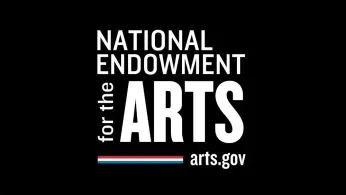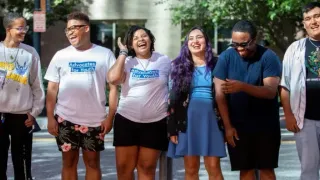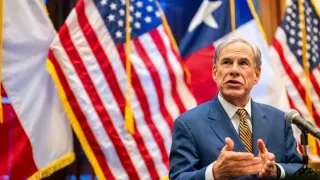
5 hours ago
In A Major Win For Queer Arts, Federal Court Strikes Down Trump-Era NEA Ban on “Gender Ideology”
READ TIME: 3 MIN.
On January 20, 2025, the Trump Administration issued Executive Order 14168, directing federal agencies—including the National Endowment for the Arts (NEA)—to disfavor or deny grant applications that “promote gender ideology.” In the administration’s words, “gender ideology” encompassed any assertion of a spectrum of genders beyond the traditional binary of male and female, as well as artistic projects that included themes of gender diversity, transgender experiences, and other LGBTQ+ identities.
This policy prompted immediate backlash from arts and civil liberties advocates, who argued it would force organizations to self-censor or risk losing essential funding. Projects and productions that centered LGBTQ+ stories, gender nonconformity, or other marginalized identities faced exclusion—threatening a wide array of cultural programming across the United States.
Four plaintiffs—Rhode Island Latino Arts, National Queer Theater, The Theater Offensive, and Theatre Communications Group—filed suit in the U.S. District Court for the District of Rhode Island, represented by the American Civil Liberties Union (ACLU). The organizations argued that the NEA’s policy violated several core principles:
- First Amendment: By discriminating against artistic projects based on their viewpoint or subject matter, the government was infringing on freedom of speech.
- Administrative Procedure Act (APA): The plaintiffs contended the rule was “arbitrary and capricious” and exceeded the NEA’s statutory authority.
- Fifth Amendment: The policy, they argued, also violated constitutional guarantees of equal protection and due process.
“These restrictions threatened to silence queer artists and organizations,” said Adam Odsess-Rubin, founding artistic director of National Queer Theater, “and set a dangerous precedent for government censorship of marginalized voices in the arts”.
On September 19, 2025, Senior District Court Judge William Smith delivered a decisive opinion: the NEA’s “gender ideology” rule was unconstitutional. Smith’s ruling identified the policy as a viewpoint-based restriction on private speech and a violation of both the First Amendment and the NEA’s founding statute. He further declared that the rule was “arbitrary and capricious” under the APA.
“The NEA was designed not as an instrument of political communication but as a vehicle for private expression,” Smith wrote. “There is zero explanation of what it means for a project to ‘promote gender ideology,’ let alone how that concept relates to artistic merit, artistic excellence, general standards of decency, or respect for the diverse beliefs and values of the American public.”
Importantly, the court not only struck down the current NEA policy, but also prohibited the government from imposing any future policy that disfavors grant applications on the basis of “promoting gender ideology”.
The decision restores access to NEA funding for arts organizations whose work highlights LGBTQ+ experiences, gender diversity, and intersectional stories. For many theaters, collectives, and independent artists, this funding is crucial for producing plays, community programs, festivals, and educational outreach that affirm and celebrate the full spectrum of gender and sexual identities.
Adam Odsess-Rubin added, “We will not allow the trans community to be scapegoated, and we will not be censored. We hope this victory gives artists hope in our continued struggle for equity, and shows arts organizations that we can work together to defend our work in this time of repression and division”.
The ruling also reaffirms the NEA’s original mandate under the 1965 National Foundation on the Arts and the Humanities Act, which requires grants to be awarded “based on talent alone, irrespective of the artists’ identities, backgrounds, viewpoints, or perspectives”.
The NEA case is part of a wider pattern of litigation against recent executive orders targeting LGBTQ+ rights and expression. According to the LGBTQ+ Bar Association, multiple lawsuits have challenged policies restricting passport gender markers, military service, and access to federal programs for transgender, nonbinary, and intersex individuals.
These cases underscore an ongoing struggle to ensure equal protection and freedom of expression for LGBTQ+ Americans, especially in the face of government directives that seek to erase or silence their lived experiences.
While the NEA case represents a significant victory, advocates caution that vigilance is necessary. Political efforts to restrict LGBTQ+ representation in public programs and cultural institutions continue at the state and federal levels. The ACLU and partner organizations have pledged to monitor future policy changes and defend the rights of artists and audiences to experience diverse and authentic stories.
For now, arts organizations across the country are celebrating a decision that upholds the constitutional freedoms of all creators—regardless of gender identity, sexuality, or artistic viewpoint. As the NEA resumes its work as a champion of American creativity, the ruling signals a renewed commitment to the values of inclusion, equity, and freedom of expression.






